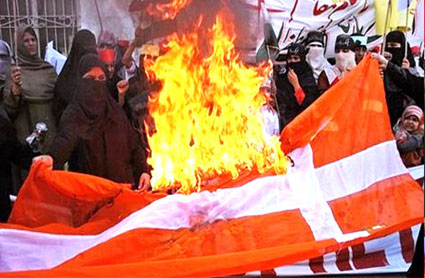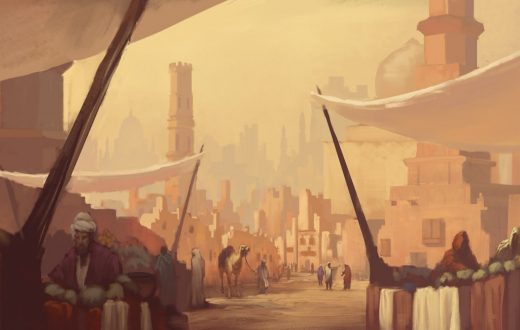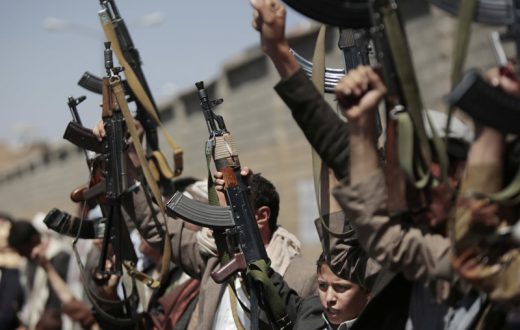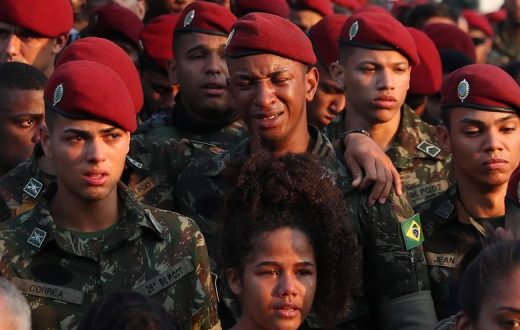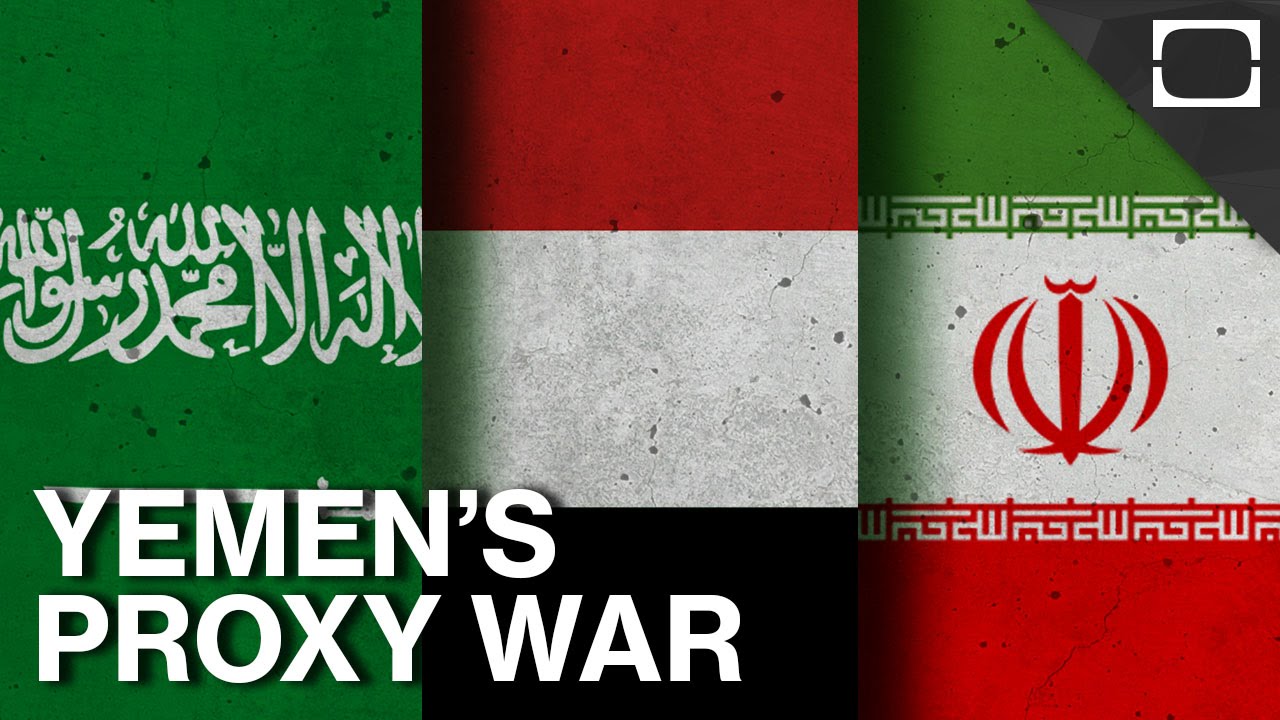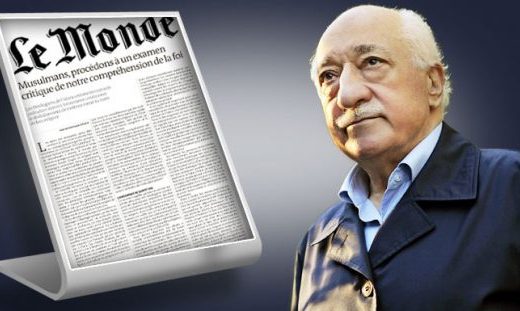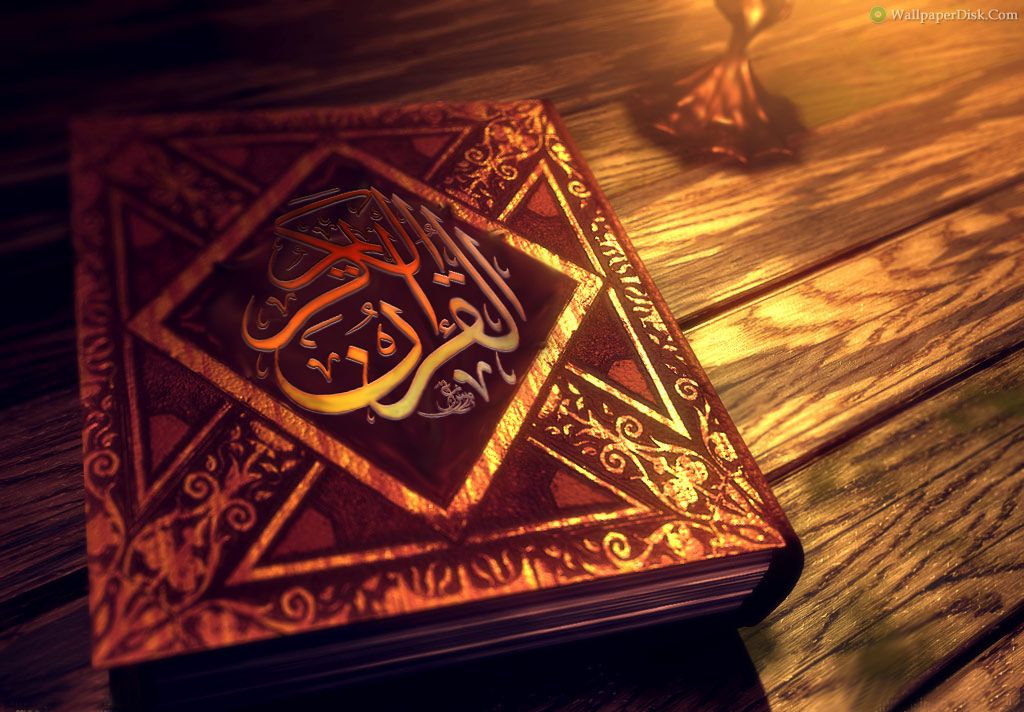A decade has passed since the Danemark’s newspaper Jyllands-Posten, published 12 drawings depicting the prophet Mohammed in various versions. This triggered Denmark’s biggest diplomatic crisis with the Arab world to date. Now 10 years later the Mohammed drawings are still as controversial in Denmark as in the rest of the world.
On September 30, 2005 Jyllands-Posten releases a page with 12 different images of the prophet Mohammed accompanied by a text stating that the freedom of speech is under pressure. This event has come to be known as the Mohammed Cartoons Crisis, or in Danish Mohammed Krisen. Flemming Rose, the cultural editor of Jyllands-Posten at the time, claimed that self-censorship is dominating in Denmark and other Western democracies when it comes to Islam. This had previously been exemplified when one Danish comedian had admitted that he was avoiding mocking Islam the same way he was mocking Christianity due to fear. Another writer also had come to the spotlight because he had problems finding someone willing to draw Mohammed for his children’s book about the life of Mohammed. As a result, Flemming Rose invited cartoonists to draw Mohammed the way they perceived him in order to test if self-censorship was dominating the Danish society and to see if the fears were based on realistic dangers. He got his answer. Other than himself being subject to ongoing death threats as well as some of the cartoonists, the Danish regime faced boycotts from the Middle East. Denmark had its embassies in Indonesia, Syria and its consulate in Beirut attacked, while there were attempts on its representations in Afghanistan and Iran during the following months. Twelve days after the release of the drawings, eleven ambassadors from different Muslim countries wrote an official letter to Anders Fogh Rasmussen, the Danish Prime Minister at the time, demanding an official apology. Despite Denmark expressing its regrets of the insult the drawings had made to Muslims it was hesitant in apologising for the drawings stating that the Danish regime does not control the Danish media. Eventually four months after the drawings Denmark finally apologises following escalating threats on Danes and accelerating demonstrations with Danish flags being burnt. Nevertheless, this did not prevent Jyllands-posten in re-publishing the drawings a few months after as well as various other Danish and international news outlets, Charlie Hebdo being one of them.
Today, 10 years later Danes differ on whether this day should be celebrated by reprinting the drawings or whether it is time to move on. The chief editor of the leading Danish newspaper ’Politikken’ states that Jyllands-Posten is obviously not to blame for violence and terror. However if the intentions for publishing the Mohammed drawings were to encourage more freedom of speech then they have failed. Today it is easier to spot the losers rather than the winners. Pointing out the terrorisation Jylland-Posten continues to deal with as well as ongoing death threats to Flemming Rose, the one in charge of printing them in the first place. Zenia Stampe, another Danish politician stated that the time has come to realise the irrelevancy of the Mohammed drawings claiming that we need to find other ways to fight for freedom of speech. Still, other Danish politicians chose to share some of the Mohammed drawings on their Facebook wall on this significant day, stating the relevancy of the drawings in the fight for freedom of speech. One of them was politician Joachim B. Olsen which wrote that if religious fanatics would have avoided using violence in reply to the drawings, then the drawings would have been forgotten. Now the drawings have become a symbol in the battle between freedom and totalitarianism.
It seems like Jyllands-Posten itself did a compromise on this significant ten year “anniversary” day as it chose to reprint the original text to the drawings with the head line ‘Mohammed’s Face’ but left the 12 spaces empty where the images had originally been placed. This leaves one to wonder whether Jyllands-Posten is indeed realizing who the losers have been in the attempt to fight self-censorship relating to Islam, or whether this is a progressive move in the fight for freedom of speech. Jørn Mikkelsen, editor-in-chief at Jyllands-posten declares that Jyllands-Posten will no longer print new Mohammed drawings or reprint the old ones due to its intense situation it has been under. Admitting the need to prioritise security this time, he states that it hurts every time and it feels like an attack on journalistic integrity but there is no other way around it, declaring that this in itself demonstrates how threatened the freedom of speech is today in an open society such as Denmark. Acknowledging that the issue of self-censorship can no longer be demonstrated by drawing Mohammed he insists that the debate of freedom of speech will continue by other means.
According to a Gallup poll more than half of the Danish people support the Muhammed drawings but only 1 in 4 think that the drawings should be reprinted. Reasons for opposing reprinting the drawings stems partially from fear of further attacks and terrorism while others think it being an unnecessary act of provocation, says Jytte Klausen, author of the book ‘The Cartoons that Shook the World’. Flemming Rose, on the other hand, says in a recent interview with the newspaper ‘Politikken’, that we should not judge people for being honest about their fears regarding their right of expression which includes having the right to draw Mohammed. The problem is when the media claims that it is avoiding printing the images because there is no need to offend anyone. That is when the debate on freedom of speech becomes insincere. He claims that tolerance and freedom are two sides of the same coins. Tolerance means that you have the right to say anything that will insult a lot of people without it resulting in people killing each other.
Has the time come to reconsider the meaning of having the absolute right to offend through expression or should we reinstate that right? Given the wide attention the issue of self-censorship in Europe has gotten following the printing of the Mohammed drawings and given the violent incidents in reaction to such events, the last being the deadly attack on Charlie Hebdo, should we call this significant day 10 years after an anniversary or a tragedy?
Súsanna Jógvansdóttir Christiansen is an expert of the Scandinavian Political Landscapes. She is specialized in the fields of Diplomacy and Security. She holds a MA in Security and diplomacy from one of the best University in the Middle East.

